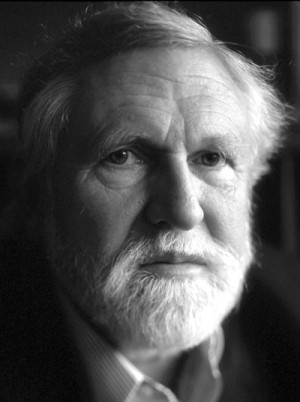Religion and Climate Change, the Unionship
admin | February 20, 2011.
The interaction between the natural phenomenon of anthropogenic climate change and the spiritual beliefs of the majority of the earth’s population is a complex one. There are three main intersections where the relationship is most notable.
1) Climate Change as a Religion?
A familiar piece of rhetoric that often comes out of the climate skeptic camp is that environmentalism, especially anthropogenic climate change, is a religion. And as such it should be disregarded as something fantastical, a figment of the environmentalist’s imagination that they are unwilling to discuss reasonably.
 A typical rendering of this idea can be found in Robert H. Nelson’s address to the AIER Global Climate Change conference in Great Barrington in 2007. He argues that environmentalism is a religion because it supplies us with an “over-arching lens by which the world is understood” and that is “provides the basis for making judgments and taking actions in the world” it is “the ‘encompassing way of thinking by which you decide what to do”. In these terms it seems religion seems pretty vague but a more precise account is typified by notable sci-fi writer Michael Crichton who famously quipped, “environmentalism is the religion of urban atheists”. He claims that the climate narrative bares stark similarities to the biblical narrative of creation and salvation: there was an Eden before people came along and ruined it, rendering us sinners who can only achieve salvation through sustainability.
A typical rendering of this idea can be found in Robert H. Nelson’s address to the AIER Global Climate Change conference in Great Barrington in 2007. He argues that environmentalism is a religion because it supplies us with an “over-arching lens by which the world is understood” and that is “provides the basis for making judgments and taking actions in the world” it is “the ‘encompassing way of thinking by which you decide what to do”. In these terms it seems religion seems pretty vague but a more precise account is typified by notable sci-fi writer Michael Crichton who famously quipped, “environmentalism is the religion of urban atheists”. He claims that the climate narrative bares stark similarities to the biblical narrative of creation and salvation: there was an Eden before people came along and ruined it, rendering us sinners who can only achieve salvation through sustainability.
The status of climate change as a religion to be particularly irrelevant because the extent to which it becomes a religion is irrelevant to whether it is true or false. But what of religion’s ability to shape people’s attitudes towards the truth or falsity of anthropogenic climate change?
2) Religion’s Ability to Influence Opinion
Religion itself, particularly Judeo-Christian faith, can at times influence people’s trust in the science of climate change. There are evangelicals who deny that man could destroy God’s perfectly designed earth. Whilst this appears to be case with only a small number of skeptics there have been notable cases that proved potentially damaging to the prospect of strong action on climate change.
 At the U.S. House Subcommittee on Energy and Environment in 2009, United States Congressman John Shimkus, a Representative from Illinois – also, chillingly enough, Member of the House Climate Committee – read from the Bible to justify his outright denial of AGW, he quotes genesis 8:22-23.
At the U.S. House Subcommittee on Energy and Environment in 2009, United States Congressman John Shimkus, a Representative from Illinois – also, chillingly enough, Member of the House Climate Committee – read from the Bible to justify his outright denial of AGW, he quotes genesis 8:22-23.
“The Lord said “never against will I curse the ground because of man…as long as the earth endures, seedtime and harvest, cold and heat, summer and winter, day and night will never cease”
He then adds “I believe that is the infallible word of god and that is how it is going to be for the future of his creation”. An influential member of Congress just used the Bible to enter what he calls a “theological debate over whether Earth is a carbon-starved planet”. If that wasn’t bad enough, take a look at where he gets his scientific information.
Lord Monckton. Enough said.
3) Religion’s ability to motivate
Religion can play a key role in uniting factional groups to combat the effects of climate change. Given the shared characteristics and values of most religions it is understandable that churches, mosques and synagogues joining together to raise awareness of the problem of AGW can be of real value. They can also raise funds to help those most affected by AGW and help lobby to create change at a political level –religious lobbying groups have traditionally wielded a strong influence over political parties across the world, especially in the U.S.
A 2009 essay from The Economist has the correct sentiment, it reads “as environmentally minded clerics, and greens with a spiritual bent, confer in increasing numbers, in particular over climate change, acquaintances are being struck that transcend many ethnic, ideological and theological obstacles.”
This is also the opinion of Oxford Zoologist Lord Robert May, a former President of the Royal Society, who has stated that religious cooperation is absolutely necessary for survival on this planet. On top of this a necessary unification may be between the religious and the scientific community: two communities drifting ever further apart, in part encouraged by the rise of the New Atheism – the rise in popularity of Atheism and it’s promotion of science as the antithesis of religion.

The New Atheism may prove to be a stumbling block in this unification of religion and environmental activism: when Lord May announced that religion can play a role in promoting science he was denounced by fellow secularists as a traitor. For success in the cooperation of the scientific and religious communities to become a possibility there will need to be a degree of flexibility and ideological compromise between them.
One thing is for certain though, that when it comes to raising awareness of key issues education is, of course, the key. Religious schools make up a large number of the world’s schools and, along with other religious institutions, have a tremendous reach and influence. Investing in the youth that fill these schools by educating them about climate change and how to act would be an admiral goal to pursue and one that is surely feasible.
The moral element of religion is, after all, a powerful one. One might be driven to act by the belief that God would divinely command such action. After all, religious leaders have encouraged such horrific actions in the past; why not use the influence for something more positive?
These are the three intersections that I find most notable. All of them have the ability to influence public perception of both the reality of climate change and the necessity of sustainability for better or for worse. The key, I believe, to strong action is what Kevin Rudd would call a ‘conceptual synthesis’ between religious groups and climate activists.










comment